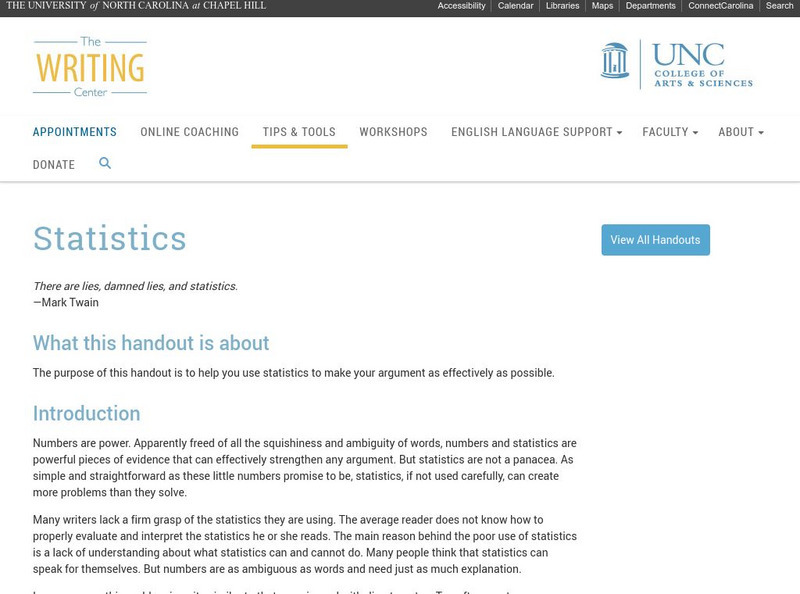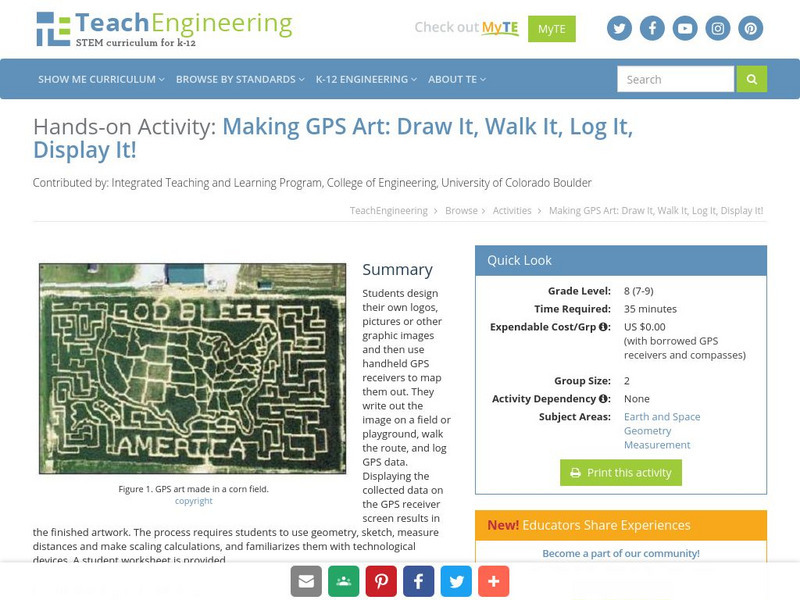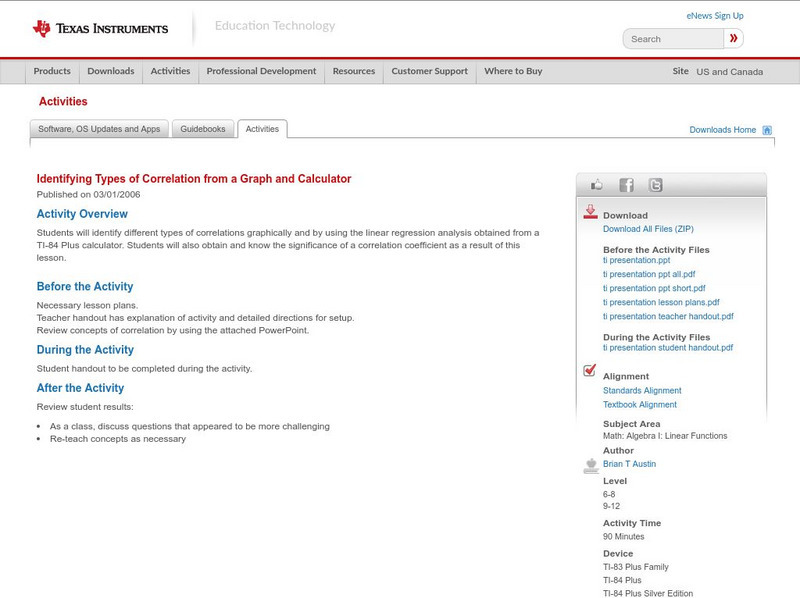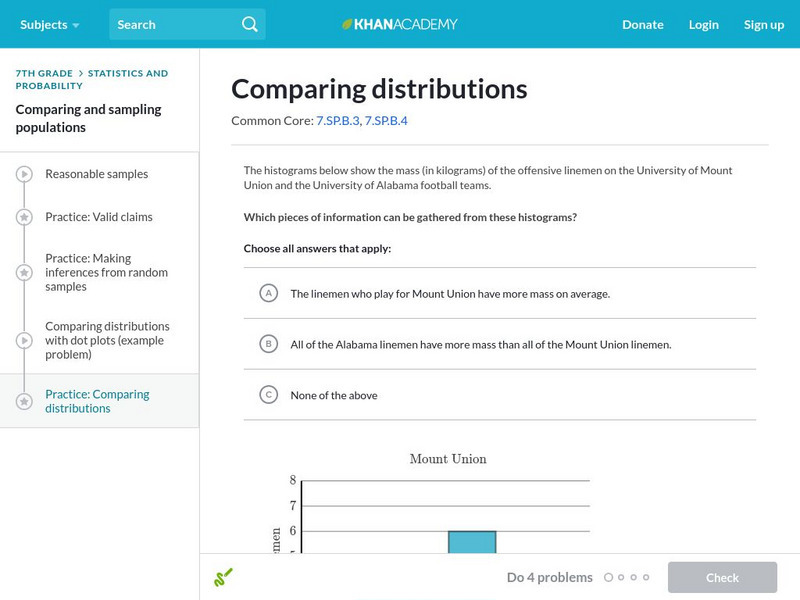Sophia Learning
Sophia: Creating Graphic Organizers
This tutorial focuses on creating graphic organizers for a variety of purposes. It presents the following types of organizers, their uses, and the format of each: the Cornell method, charting method, cause and effect organizers, flow...
Science Buddies
Science Buddies: Interpreting Area Data From Maps vs. Graphs
Graphical methods of data presentation are a key feature of scientific communication. This project asks the question, "What's the best way to compare the land area of states: a map or a bar graph?" You'll be measuring performance on two...
Daily Teaching Tools
Daily Teaching Tools: Customizable Graphic Organizers
This Daily Teaching Tools resource provides a series of graphic organizers for reading students. Forms are provided for plot, character analysis, reading logs, and reading responses.
Alabama Learning Exchange
Alex: Let's Get to Know Big Al
During this lesson the learners will read and discuss the story Big Al, by Andrew Clements. Students will identify the story elements of Big Al and complete a story element map. Learners will also do a character analysis of Big Al.
Science Buddies
Science Buddies: An Experiment in Visual Perception
Graphical methods of data presentation are a key feature of scientific communication. This project will get you thinking about how to find the best way to communicate scientific information.
Annenberg Foundation
Annenberg Learner: Drawing a Box Plot
Learn how to represent the Five-Number Summary graphically using a box plot.
Shodor Education Foundation
Shodor Interactivate: Lesson: Box Plots
This lesson plan introduces quartiles and box plots. It contains an activity and discussion. Supplemental activities about how students can represent data graphically are also included.
Polk Brothers Foundation Center for Urban Education at DePaul University
Depaul University: Center for Urban Education: Evaluate Decisions [Pdf]
A nonfiction graphic organizer is available to help students evaluate decisions of people. Students will analyze how characters interact and develop throughout the course of a nonfiction text.
University of North Carolina
University of North Carolina Writing Center Handouts: Statistics
When presenting an argument, the use of statistics to support a point can be very effective. This handout offers advice on both how to read statistics so that you understand exactly what they mean, and how to use them in your argument so...
National Endowment for the Humanities
Neh: Edsit Ement: I'm Gonna Sit Right Down and Write Someone a Letter
Through the vast online resources available from EDSITEment, students can read the correspondence of the famous, the infamous and the ordinary, some of whom lived through extraordinary times. Use these fascinating letters as a starting...
Cuemath
Cuemath: Line Graphs
A comprehensive guide for learning all about line graphs with definitions, their sections, how to read and create graphs, solved examples, and practice questions.
Cuemath
Cuemath: Pictographs
A comprehensive guide for learning all about pictographs with definitions, solved examples, and practice questions.
Shodor Education Foundation
Shodor Interactivate: Lesson: Stem and Leaf Plots
Lesson plan introduces young scholars to stem-and-leaf plots. Many resources are available for student and teachers here.
Houghton Mifflin Harcourt
Holt, Rinehart and Winston: Writer's Workshop: Analyzing a Character [Pdf]
Organize your thoughts about two different characters using this printable worksheet. Five elements of character are covered. RL.9-10.3 Analyzing Characters
Science Buddies
Science Buddies: Sunspot Cycles
Sunspot activity has been monitored continuously since about 1700. The historical data shows that sunspot activity rises and falls in a roughly 11-year cycle. This project shows you how you can use both graphical and statistical analysis...
Better Lesson
Better Lesson: Work Out Together
Students will read an article and determine the author's point and identify the reasons the author gives to support his or her point. This lesson requires analysis by the students and a great deal of higher-order thinking as they...
Department of Defense
Do Dea: Spreadsheet Software: M4: L5: Show Me Your Skills: Practice Skills
In Module 4 Lesson 5 of this course on spreadsheets, students review what they have learned in the previous four lessons about building charts, using conditional formatting, and enhancing their spreadsheet by inserting images, text, and...
TeachEngineering
Teach Engineering: Gps Art
Students design their own logo or picture and use a handheld GPS receiver to map it out. They write out a word or graphic on a field or playground, walk the path, and log GPS data. The results display their "art" on their GPS receiver...
TeachEngineering
Teach Engineering: Ball Bounce Experiment
Many of today's popular sports are based around the use of a ball, yet none are completely alike. In fact they are all designed with specific characteristics in mind. Students will investigate different balls' abilities to bounce and...
Texas Instruments
Texas Instruments: Identifying Types of Correlation From a Graph and Calculator
Students will identify different types of correlations graphically and by using the linear regression analysis obtained from a TI-84 Plus calculator. Students will also obtain and know the significance of a correlation coefficient as a...
Khan Academy
Khan Academy: Comparing Distributions
Practice comparing distributions of data in different forms of graphical representation.
Other
Karbos Guide: Illustrated Guide to Video Cards
Detailed site explaining the video card and all its uses in easy to understand language. Charts and pictures included with links to other modules.



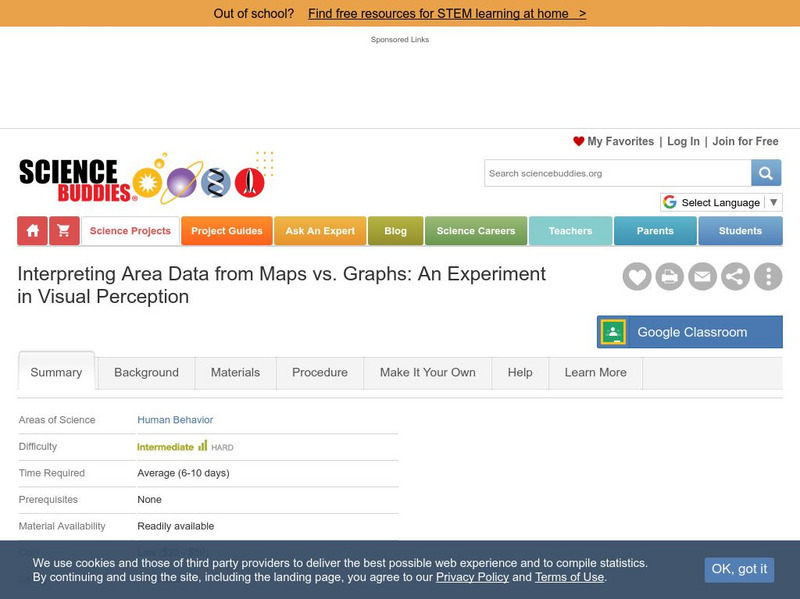


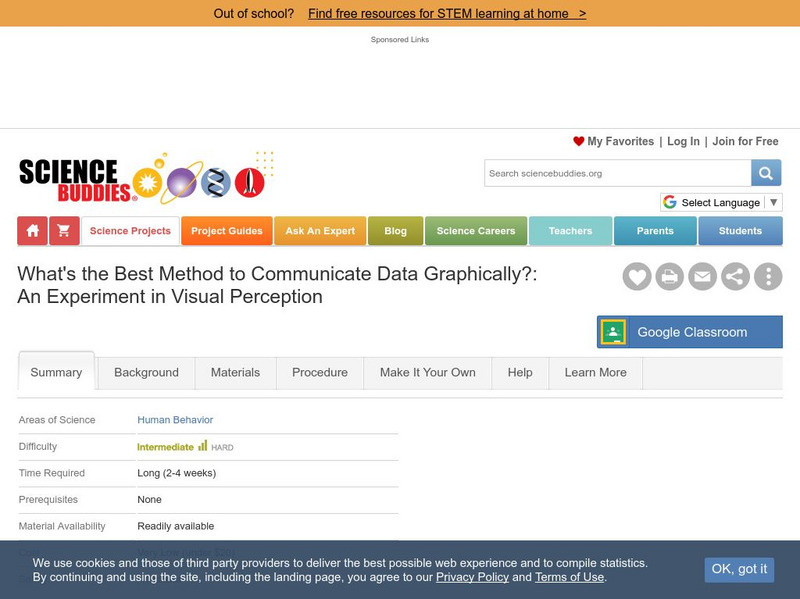

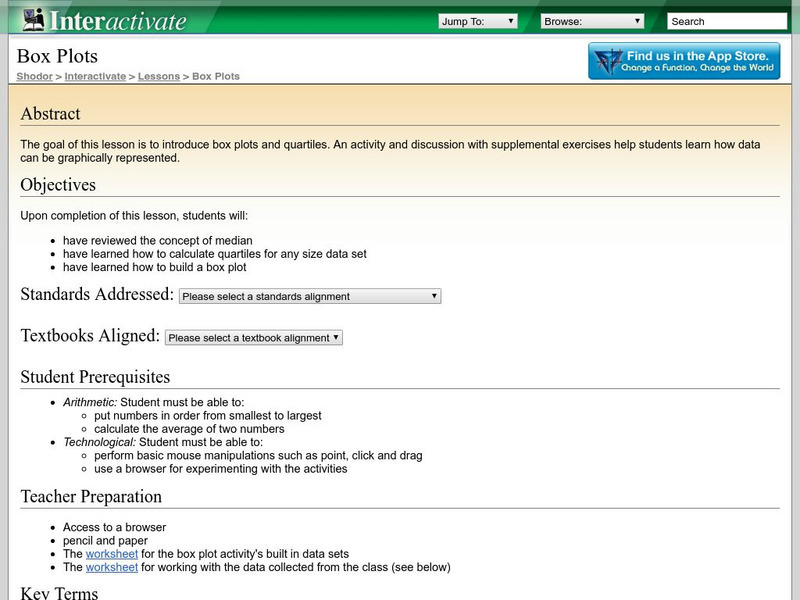
![Depaul University: Center for Urban Education: Evaluate Decisions [Pdf] Graphic Depaul University: Center for Urban Education: Evaluate Decisions [Pdf] Graphic](https://d15y2dacu3jp90.cloudfront.net/images/attachment_defaults/resource/large/FPO-knovation.png)
